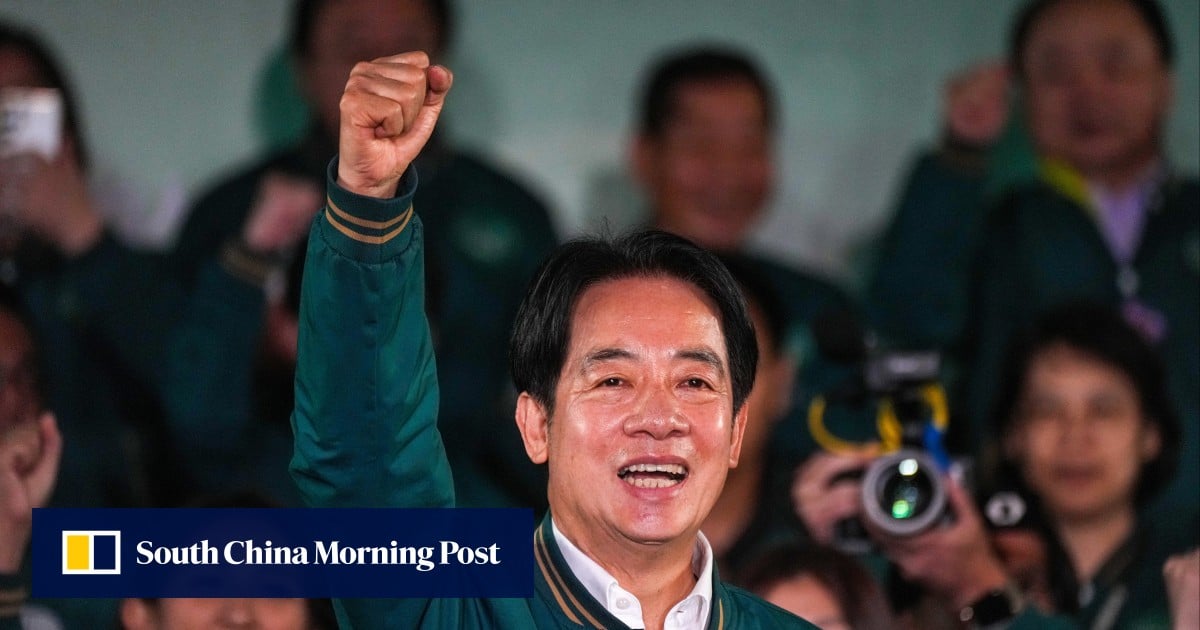Incoming Taiwan cabinet to feature fresh faces but security left to old hands
Incoming Taiwan cabinet to feature fresh faces but security left to old hands
In January, just before the island’s presidential election, the Ministry of State Security said in an article that it would “strike to curb the ‘Taiwan independence forces’” and accused Taipei’s intelligence agencies of being “hitmen” for these forces.
The January article also revealed that the ministry had organised several operations in 2018 and 2020 to detain Taiwanese spies, resulting in the dismantling of several espionage networks set up by Taipei against Beijing.
Taiwan’s president-elect calls on Beijing to join party-to-party talks
Taiwan’s president-elect calls on Beijing to join party-to-party talks
Lai, a member of the independence-leaning Democratic Progressive Party, is expected to take office on May 20.
Beijing has repeatedly accused Lai of being a “stubborn separatist”.
Beijing sees Taiwan as part of China, to be reunified by force if necessary. Most countries, including the US, do not recognise Taiwan as an independent state, but Washington opposes any attempt to take the self-ruled island by force and has pledged to arm Taiwan.
In recent years, Beijing has made public several cases in which Taiwanese citizens were deemed to have threatened national security.
In August 2022, state security authorities in Wenzhou in the eastern province of Zhejiang detained Taiwanese politician Yang Zhiyuan on suspicion of engaging in separatist activities. It was one of several actions Beijing took in response to a Taiwan visit by then US House Speaker Nancy Pelosi. Beijing has yet to release an update on the case since Yang was formally prosecuted in April of last year.
Taiwanese activist Lee Ming-che served a five-year sentence on the mainland for subversion. He was released and returned to Taiwan in April 2022.
In Monday’s article, Chen also vowed that the ministry would continue to guard against “colour revolutions” and manage ideological risks online and at universities.
The article added that mainland China’s counter-espionage agencies would protect “traditional security”, encompassing political, economic and military security, as well as “non-traditional security” – a term that includes biosecurity, data security and artificial intelligence.
Chen added that the ministry would continue to crack down on terrorism.
Mainland China’s intelligence agencies have carried on a massive propaganda campaign for more than a year, warning of the threat posed by foreign spies and urging the public to share information about suspicious activities.







